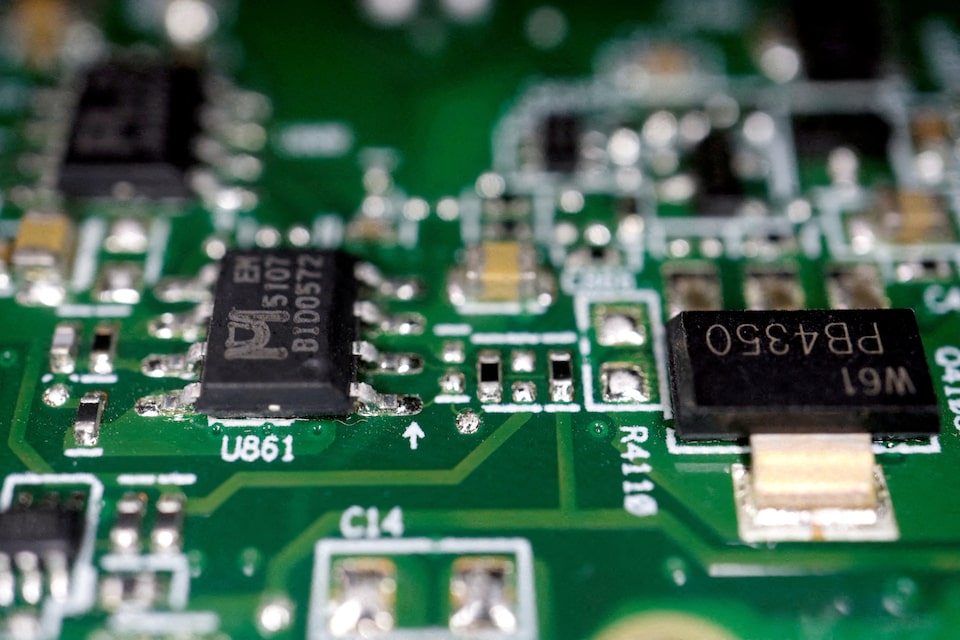Semiconductor chips are seen on a printed circuit board in this illustration picture taken February 17, 2023. REUTERS

Samsung Electronics’ booth is seen during Korea Electronics Show 2024 in Seoul, South Korea, October 23, 2024. REUTERS
SEOUL, Nov 27 (Reuters) – South Korea plans to roll out 14 trillion won ($10 billion) of low-interest loans next year to support its chip industry, the finance ministry said, as the sector grapples with Chinese competition and uncertainties over a new U.S. administration.
The loans will be channelled through state-run banks and include 1.8 trillion won in finance to install power transmission lines to support companies at a new chip complex.
South Korea, home to top memory chip makers Samsung Electronics (005930.KS), and SK Hynix (000660.KS), is building a complex in Yongin and Pyeongtaek, south of the capital Seoul, touted as the world’s largest high-tech chipmaking cluster in a bid to attract chip equipment and fabless companies.
The ministry noted rapid advancements in China’s semiconductor industry and uncertainties about the policy direction when U.S. President-elect Donald Trump returns for a second term in office.
“In response, the government plans to mobilise all available resources and actively support companies in overcoming the industry’s crisis and achieving a renewed leap forward,” the ministry said in a statement.
South Korea expects significant changes in the global trade and industrial environment following the inauguration of the new Trump administration, the ministry said.
These included concerns over reduced incentives for investments in the United States if there were changes to the Inflation Reduction Act and the Chips and Science Act, as well as the imposition of broader tariffs.
Trump said on Monday that on his first day in office he would impose a 25% tariff on all products from Mexico and Canada and an additional 10% tariff on goods from China, citing concerns over illegal immigration and trade of illicit drugs.
South Korea has fallen behind some rivals in areas such as chip design and contract chip manufacturing, while also facing more competition from Chinese companies.
Last month, Samsung Electronics said rising supplies of traditional chips from Chinese rivals had impacted its third-quarter earnings results.
Reporting by Heekyong Yang; Additional reporting by Jihoon Lee; Editing by Ed Davies





